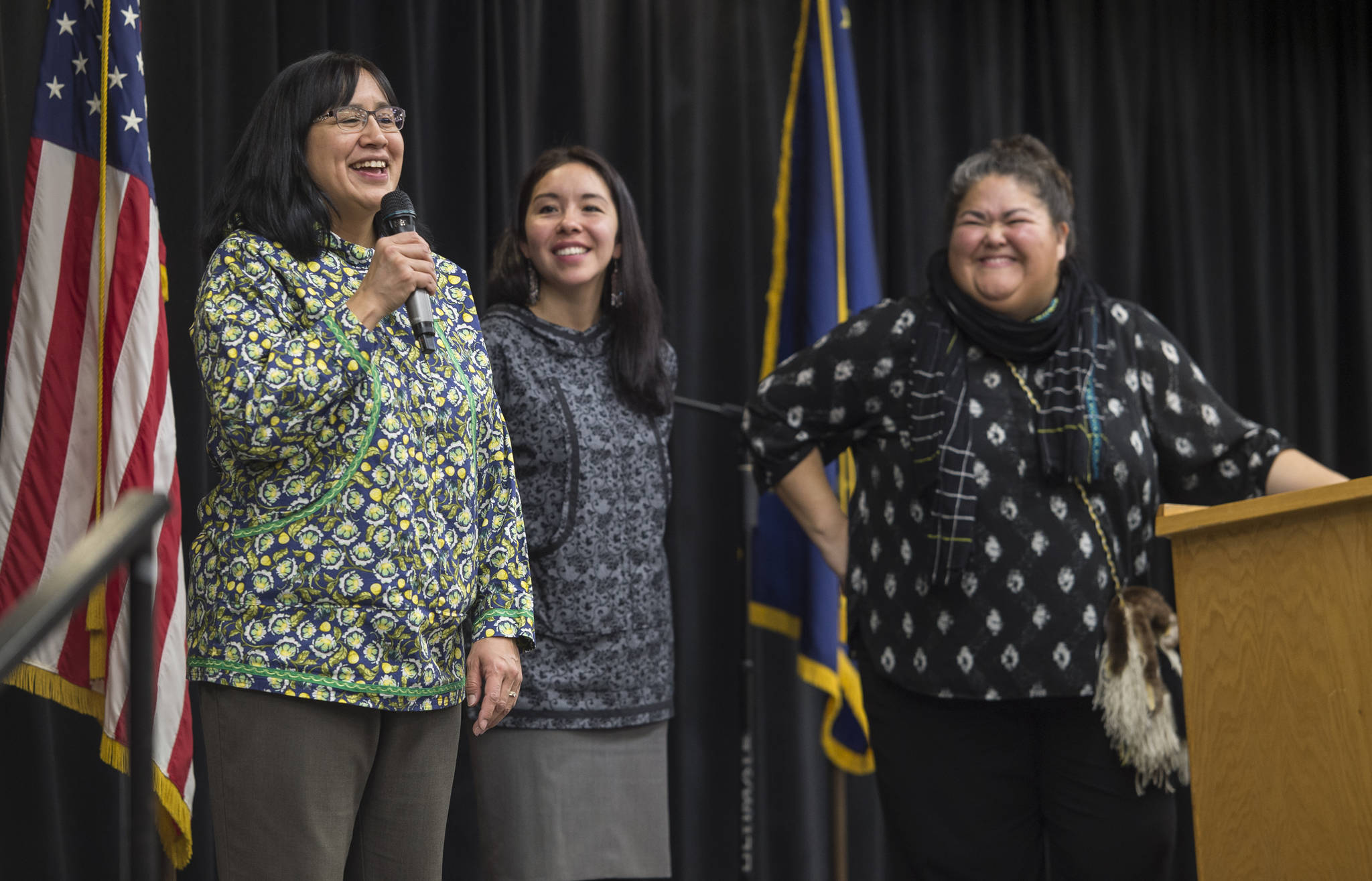In 2017, Chris Apassingok of Gambell made a remarkable strike on a whale, helping bring home thousands of pounds of meat in the annual subsistence hunt from St. Lawrence Island.
He was excoriated by animal-rights activists ignorant of subsistance hunting practices and hailed by supporters of traditional Native lifestyles.
On Thursday, his mother was present in Juneau as Central Council Tlingit and Haida Indian Tribes of Alaska held its final Native Issues Forum of the spring. The hourlong discussion, taking place with the help of First Alaskans Institute, was devoted to addressing racism in Alaska.
“What we’re trying to achieve is a process by which we transform the way we as a society view each other,” said First Alaskans President and CEO Liz Medicine Crow.
Speaking to an audience of nearly 100 people in Elizabeth Peratrovich Hall, she said the goal is a “truth and reconciliation” process akin to ones undertaken in Canada and South Africa.
Alaska, she said, needs a “truth, racial healing and transformation movement” because it’s starting farther back than Canada and South Africa: Many Alaskans don’t understand that a problem exists. Alaskans, unlike people in other countries, haven’t reached consensus that there is a problem.
“That’s not the history of this country, nor is it the history of this state,” she said.
According to figures from the Alaska Section of Vital Statistics, Alaska Native infants are more than three times likely to die than white infants. Alaska Natives are more likely to suffer from chronic health problems and die earlier than white Alaskans. Alaska Natives are more likely to be poor and suffer from inadequate nutrition.
Many of the problems that affect Native communities today are the result of past events. In the 19th and 20th centuries, the U.S. federal government, Alaska territorial government and religious organizations deliberately suppressed Native culture and traditional organizations in favor of institutions modeled on those in the Lower 48 and Europe.
In Gambell, for example, school district employees are permitted only five days for subsistence hunting: Not enough to pursue walrus or whales that might be hundreds of miles distant, and not enough to gather other kinds of food.
Over the next few years, Medicine Crow said, First Alaskans Institute will be embarking on an effort to identify problems and suggest solutions to them. Those will lead to a list of recommendations to be submitted to state officials.
On Thursday, some of the first steps in that process involved simply sitting in groups and writing things down: problems, goals, potential solutions and strategies.
“All of you are going to help us flesh out this strategy so we can launch a TRHT strategy in Alaska,” said Andrea Sanders, Native Policy Director for First Alaskans.
Sanders said the idea is to not just have a discussion and make a few changes, to create a “blip,” but to create a movement that permanently changes how Alaskans think about racial issues.
Medicine Crow said similar discussions in South Africa and Canada haven’t been a universal cure-all, even after years of work.
“They’re still struggling with the same thing. What will happen here differently?” she said.
Nevertheless, she said, it’s worth trying.
“But if we do nothing, what will change?”
• Contact reporter James Brooks at jbrooks@juneauempire.com or 523-2258.

